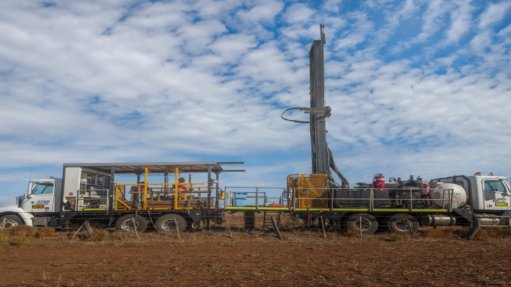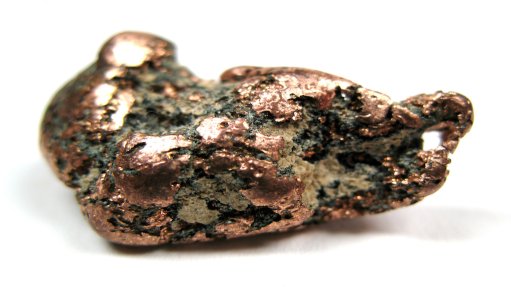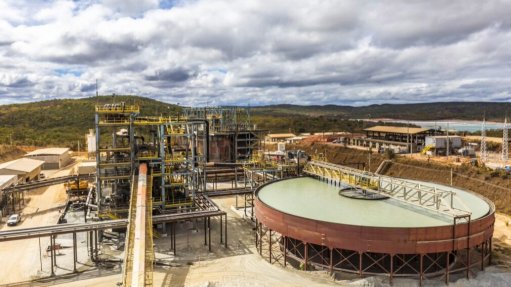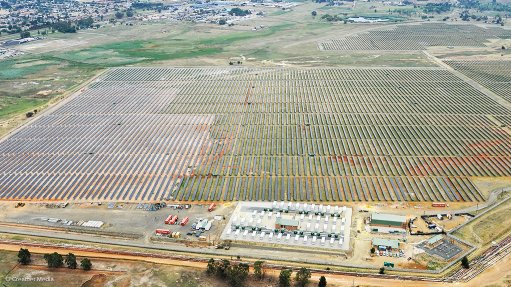National nanotechnology centre developing prototypes, commercialising technologies
The National Centre for Nanostructured Materials (NCNSM) at the Council for Scientific and Industrial Research plans to commission its third pilot plant during the course of this year. The centre’s current two pilot plants were both brought into operation in the middle of 2016. One of these is being used for nanocomposites programmes and the other for nanoparticles programmes.
“If you want to take your science to industry, one of the things you have to do is to prove it,” explains NCNSM manager Professor Suprakas Sinha Ray. “The pilot plants allow us to prove our products and show that they can work on an industrial scale.”
The third pilot plant will be officially designated the Nano Micro Device Manufacturing Facility. It will be used for diverse manufacturing programmes. One such programme is to develop a paper-based water-quality sensor. The nanodevice-impregnated paper would be dipped in the water and then display the quality of the water (in a manner reminiscent of how paper pH test strips show the acidity or basicity of a water-based solution). It would be both very cheap and disposable.
Another programme being considered for the new facility is the development of an ammonia sensor for use in the food industry. The appearance of ammonia in food indicates that the food is beginning to decay. Such a sensor would allow food to be identified as safe, even if it was past its use-by date. This would save a fortune and greatly reduce food wastage.
Regarding the nanocomposites pilot plant, its programmes are targeted at advanced packaging and structural applications. Regarding packaging, the NCNSM research and development (R&D) team is looking at both rigid and flexible applications. As testing for one type of nanocomposite ends, a test programme for another one starts. The centre’s researchers are testing different nanocomposite materials for different applications. Concerning the nanoparticles pilot plant, the target sectors for its R&D programmes are cosmetics, water purification and nanocomposites. Nanoparticles go into nanocomposites, making the two R&D programmes complementary.
“We have already commercialised four products with local company Amka in the cosmetics sector,” reports Ray. “And we are now in [the] industrial test [stage] of two nanocomposite materials, with the help of petrochemicals group Sasol (to widen the applications of polyolefins, such as polypropylene). We hope these will also be in the market sometime during this year. One of these nanocomposites is unique and local commercialisation and manufacture will [facilitate] the ending of material imports into the country that currently run at R500-million.”
Even before the new facility has been set up, the centre has developed a prototype device. This is a breath analyser to detect diabetes without the need for a blood test. This is now undergoing clinical trials with assistance from the private sector. The clinical trials required for a medical device are not as extensive as those required for new medication. “We are finalising an agreement for the manufacture and commercialisation of the device with local company Alcosafe,” he points out. “We’re working with them because they already make a suitable platform for our device – a breathalyser for detecting and measuring alcohol. So, they only need to modify their existing device and will not need to invest heavily in developing a new platform. They also export to other countries already. We hope that the trials will be [completed] and the commercialisation agreement signed before the end of this year.”
Already, the NCNSM is working to expand this technology to develop a device that could detect cancer from breath analysis. Other new projects include the development of nanofibre-based composite materials. Until now, the centre has been focused on nanoclay-based composites. Now it is working with local start-up company CCT, supported by funding from the Industrial Development Corporation, to start manufacturing carbon nanotubes; the centre is working with CCT to optimise its technology.
At the end of November, the NCNSM celebrated its tenth anniversary. “The highlight for the next ten years is to have more impact on the country and the economy,” affirmed Ray. “That is our mission now.”
Article Enquiry
Email Article
Save Article
Feedback
To advertise email advertising@creamermedia.co.za or click here
Announcements
What's On
Subscribe to improve your user experience...
Option 1 (equivalent of R125 a month):
Receive a weekly copy of Creamer Media's Engineering News & Mining Weekly magazine
(print copy for those in South Africa and e-magazine for those outside of South Africa)
Receive daily email newsletters
Access to full search results
Access archive of magazine back copies
Access to Projects in Progress
Access to ONE Research Report of your choice in PDF format
Option 2 (equivalent of R375 a month):
All benefits from Option 1
PLUS
Access to Creamer Media's Research Channel Africa for ALL Research Reports, in PDF format, on various industrial and mining sectors
including Electricity; Water; Energy Transition; Hydrogen; Roads, Rail and Ports; Coal; Gold; Platinum; Battery Metals; etc.
Already a subscriber?
Forgotten your password?
Receive weekly copy of Creamer Media's Engineering News & Mining Weekly magazine (print copy for those in South Africa and e-magazine for those outside of South Africa)
➕
Recieve daily email newsletters
➕
Access to full search results
➕
Access archive of magazine back copies
➕
Access to Projects in Progress
➕
Access to ONE Research Report of your choice in PDF format
RESEARCH CHANNEL AFRICA
R4500 (equivalent of R375 a month)
SUBSCRIBEAll benefits from Option 1
➕
Access to Creamer Media's Research Channel Africa for ALL Research Reports on various industrial and mining sectors, in PDF format, including on:
Electricity
➕
Water
➕
Energy Transition
➕
Hydrogen
➕
Roads, Rail and Ports
➕
Coal
➕
Gold
➕
Platinum
➕
Battery Metals
➕
etc.
Receive all benefits from Option 1 or Option 2 delivered to numerous people at your company
➕
Multiple User names and Passwords for simultaneous log-ins
➕
Intranet integration access to all in your organisation


















